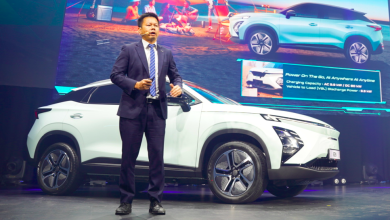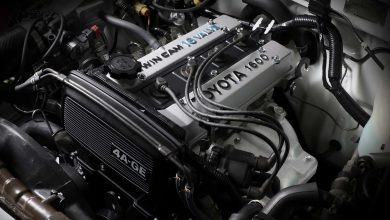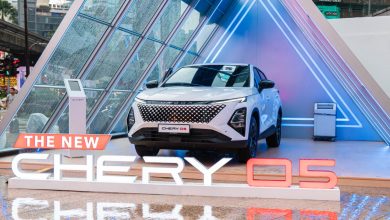Mazda6 அனைத்து புதிய SKYACTIV மாதிரி வரும்

லாஸ் ஏஞ்சல்ஸ் கார் ஷோவில், மாஸ்டா மோட்டார் கார்ப்பரேஷன் உலகம் முழுவதும் முழுமையாக மீண்டும் வடிவமைக்கப்பட்ட மற்றும் சுத்திகரிக்கப்பட்ட Mazda6 சேடன் திறக்கப்படும். மஸ்டாவின் மனித மைய வடிவமைப்பு வடிவமைப்பு தத்துவத்தின் புதிய பதிப்பிற்கான அடிப்படையை வழங்கியது, இது புதிய பவர்டிரெய்ன் தொழில்நுட்பம் மற்றும் அதிக பிரீமியம் வடிவமைப்பு விபரங்களைக் கொண்டுள்ளது.
செயல்திறன் இல்லாத செலவில் உண்மையான உலக எரிபொருள் செயல்திறனை மேம்படுத்துவதற்கு நான்கு மற்றும் இரண்டு சிலிண்டர் நடவடிக்கைகளுக்கு இடையில் சுவிட்சர்லாண்ட் டிராக்டிவேஷன் சிஸ்டத்துடன் ஸ்விஆஆஆஐசிடிவி-ஜி 2.5-லிட்டர் நேரடி ஊசி பெட்ரோல் எஞ்சின் அடங்கும். மஸ்டா சிஎக்ஸ் -9 குறுக்குவழி எஸ்யூவியுடன் அறிமுகப்படுத்தப்பட்ட டர்போசார்ட்-ஜி 2.5 டீ பெட்ரோல் என்ஜின், இதற்கிடையில், வட அமெரிக்காவில் வழங்கப்படும் பவர்பிரைன்களின் வரம்பிற்கு மேலும் சேர்க்கப்படும்.
ஸ்டைலிங் பொறுத்தவரை, வடிவமைப்பாளர்கள் புதிய Mazda6 உள்ளே மற்றும் வெளியே தரத்தை உணர்வு மேம்படுத்தப்பட்ட, அதன் விருது பெற்ற தோற்றத்தை முதிர்வு மற்றும் அமைதியான சேர்த்து. மேல் தொகுப்பு பாரம்பரிய இசை கருவிகள் மற்றும் மரச்சாமான்கள் பயன்படுத்தப்படும் ஜப்பனீஸ் சென் மரம் போன்ற பிரத்யேக டிரிம் உறுப்புகள் கொண்டுள்ளது. வடிவமைப்பு மிகவும் நேர்த்தியான மற்றும் ஒட்டுமொத்த மதிப்பாக உள்ளது.
மேம்பட்ட i-ACTIVSENSE பாதுகாப்பு தொழில்நுட்பம் இன்னும் பரந்த அளவிலான இயக்கி சாத்தியமான அபாயங்களை அடையாளம் மற்றும் சேதம் அல்லது காயம் வாய்ப்பு குறைக்க உதவுகிறது, இதனால் சக்கரம் பின்னால் இன்னும் ஓய்வு மற்றும் நம்பிக்கை கட்டிடம் அனுபவம் வழங்கும். மஸ்டா ராடார் குரூஸ் கண்ட்ரோல் (MRCC) இப்போது காரை நிறுத்தி நிறுத்தி நிறுத்திக் கொண்டு, முந்தைய வாகனம் விலகிச் செல்லும்போது மீண்டும் எடுக்கலாம். புதிய Mazda6 கார்மேக்கரின் சமீபத்திய 360 ° வியூ கண்காணிப்புடன் சேர்க்கிறது.




